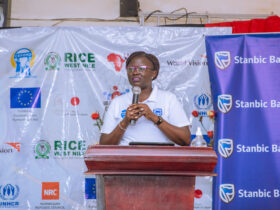The 11th Parliament on Friday passed a Shs48.1 trillion Budget for the Financial Year 2022/2023 as the country continues to smart from the Covid-19 pandemic and recent geopolitical tensions in the Black Sea region.
Speaker Anita Among cautioned that the approved funds be appropriately used as the country deals with a cost of living crisis.
“We have done the appropriation. What remains now is for us to do the oversight role. We need to monitor this Shs48 trillion Budget to see what is going to come out of this money,” Speaker Among told lawmakers.
A gruelling eight-hour session culminated in lawmakers giving the green light to a Budget that will be financed through the taxman’s collections (Shs25.7 trillion), grants (Shs2.1 trillion) and domestic borrowing (Shs7.1 trillion).
Consequently, Uganda Revenue Authority (URA) has been allocated sufficient funds, with Mr Patrick Isiagi, the Budget Committee chairperson, reasoning that the taxman “should be fully funded to the extent that they perform their role without any excuse.”
“I am glad that this Budget will mark the beginning of the recovery of this economy,” junior Finance minister (General Duties) Henry Musasizi said.
The Budget was processed by the parliamentary Committee on Budget, with the input of government ministries, departments and agencies such as the Finance ministry and National Planning Authority (NPA).
Top, least funded units
The appropriations show that the human capital development programme—in which the education, health, and gender sectors fall—hold the lion’s share of the national cake, splitting Shs8.7 trillion (or 18 percent of the Budget).
They are followed by security and governance, whose cumulative Shs7 trillion reflects a 14 percent share of the Budget.
The same Budget also indicates that the integrated transport infrastructure and services has been given Shs4.1 trillion; sustainable energy development (Shs1.6 trillion); and the private sector development (Shs1.5 trillion). These constitute the top five funded units.
The least funded include innovation, technology development and transfer with Shs20b; mineral development (Shs31b); community mobilisation and mindset change (Shs73b) and digital transformation (Shs83b).
Public debt
Mr Isiagi, however, expressed fears over the country’s constantly soaring public debt.
“As of December 2021, the total debt stock was Shs73.5 trillion, indicating an increase from Shs65.6 trillion at end of December 2020. This represents an increase of 15.4 percent in debt stock, equivalent to Shs7.9 trillion during the year,” Mr Isiagi noted.
He added: “As at December 2021, out of the total debt stock, 62.2 percent—amounting to Shs45.7 trillion—was attributed to external debt, while 37.8 percent, equivalent to Shs27.8 trillion, was on account of domestic debt.”
To compound matters, borrowed funds do not translate into growth in terms of Gross Domestic Product (GDP).
“The rate of increase in debt is higher than the rate of growth in GDP levels, which is very dangerous. That indicates that the debt we go into, the investment does not impact GDP growth,” Mr Isiagi told Parliament.
He added: “The committee recommends that we get debts [and] loans which must grow the GDP.”












